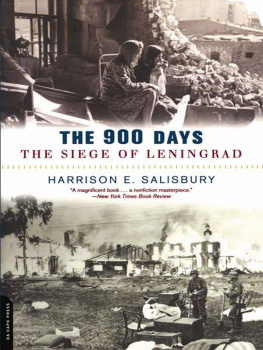This edition is published by PICKLE PARTNERS PUBLISHING www.picklepartnerspublishing.com
To join our mailing list for new titles or for issues with our books contact@picklepartnerspublishing.com
Text originally published in 1809 under the same title.
Pickle Partners Publishing 2013, all rights reserved. No part of this publication may be reproduced, stored in a retrieval system or transmitted by any means, electrical, mechanical or otherwise without the written permission of the copyright holder.
Publishers Note
Although in most cases we have retained the Authors original spelling and grammar to authentically reproduce the work of the Author and the original intent of such material, some additional notes and clarifications have been added for the modern readers benefit.
We have also made every effort to include all maps and illustrations of the original edition the limitations of formatting do not allow of including larger maps, we will upload as many of these maps as possible.
NARRATIVE
OF THE
SIEGE OF ZARAGOZA.
BY CHARLES RICHARD VAUGHAN, M.B.
Fellow of All Souls College, Oxford, and one of Dr. Radcliffes
Travelling Fellows from that University.
THE THIRD EDITION, WITH CORRECTIONS AND ADDITIONS
PREFACE.
I MADE in the summer of the last year a long tour in Spain, and amid a great variety of objects, (which from the scenes then acting in that country, could not fail to excite in me the most ardent curiosity) I took care to visit Zaragoza. I was there introduced to Don Joseph Palafox, at whose table I lived; and whom I twice accompanied as a volunteer to his army on the frontiers of Navarre. I had opportunities therefore of seeing him very frequently, and conversing with him a great deal. In the town of Zaragoza itself, where I remained several weeks, I took great pains to enquire into, and to verify every particular of the siege.
I have lately received a letter from my friend Brigadier-General Doyle, stating the dreadful hardships to which the people of Zaragoza were about to be exposed in a second siege, and requesting I would interest myself in setting on foot some public subscription for their relief. It occurred to me that the best mode of turning the compassion of the public to the sufferings of the Aragonese, was by stating all that I knew of their heroic achievements; I have endeavoured to do so as simply, and concisely as possible, and with the strictest regard to truth. The indulgence which the hasty execution of this work, requires, will be the more readily granted, when I state that any little profit which may arise from the sale of it, will be applied to the relief of the inhabitants of Zaragoza.
It will give me the most heartfelt pleasure if this little narrative should excite any general interest in their favour; that they will ultimately fall is not improbable; but till they despair for themselves, the true friends of Spanish freedom will not despair for them; let the issue however be what it may, it must be right, in times like these, to record an event which teaches so forcibly the resources of patriotism, and courage.
CHARLES R. VAUGHAN.
London, January 25th, 1809.
Contents
APPENDIX:French Account of the Siege of Zaragoza. 15
NARRATIVE OF THE SIEGE OF ZARAGOZA.
ZARAGOZA, the capital of the kingdom of Aragon, is seated in a valley of the Ebro, on the right bank of that river, with a suburb upon the left bank, connected with it by a stone bridge. From the city, as far as the high mountains that bound the view on either hand, the country is covered with olive trees, and the neighbouring district, under an extensive system of irrigation, produces corn, and fruits in abundance. Though the mountains are distant, yet the city is commanded by some high ground, called the Torrero, about a mile to the south-west, upon which there is a convent, and other buildings, of inferior note. The canal of Aragon, over which there is a bridge, divides the Torrero from another elevation, where the Aragonese erected a battery previously to the siege.
The walls of Zaragoza appear to have been constructed merely to facilitate the means of levying taxes upon every article brought into the town for sale; the gates, which are nine in number, are of the most simple construction, and the alignment between them, is in some places preserved by the mud-wall of a garden, in others by buildings, or by the remains of au old Moorish wall, which has a slight parapet, but without any platform even for musquetry.
The buildings of the city are of brick, and the two cathedrals, the numerous convents and churches, though built of the same materials, are not, altogether, devoid of ornament. The houses are three stories in height; the streets very narrow and crooked, excepting one or two Market-places, and the Street called the Cozo, situated nearly in the centre of the town.
The population of Zaragoza may be estimated at about 60,000 souls; although the census taken in 1787, gives only 42,600.
It was on the 25th of May, 1808, that the inhabitants of this defenceless city, and the peasantry of the surrounding country, rose in a mass, to repel the unprincipled aggressions of the French. The Captain-General of Aragon, Guilliamah had betrayed an inclination to submit to the enemy, by attempting to disarm the people; in consequence of this, he was seized, and thrown into prison, and the inhabitants of Zaragoza, and of the neighbouring villages unanimously conferred the government upon Don Joseph Palafox, the youngest of three brothers of one of the most distinguished families in Aragon.
At the commencement of the revolution; this nobleman had been selected from the officers of the guards, to be second in command to the Marquis de Castillar, to whose custody the Prince of the Peace was confided after his arrest at Aranjuez; he afterwards accompanied Ferdinand VI. to Bayonne, from whence he had recently escaped, in the disguise of a peasant to his country - seat near Zaragoza.
This distinguished nobleman is about thirty-four years of age: his person of middling stature; his eyes lively, and expressive, and his whole deportment that of a perfectly well bred man accustomed to the best society. At the time when Don J. Palafox assumed the command in Aragon, he had very little acquaintance with military affairs; for though he had been in the Spanish guards all his life, he had never seen actual service, and his time had been principally past in the dissipation of Madrid, where he had gained no inconsiderable distinction from the splendour, and fashion of his appearance.
At the commencement of his command on the th of May, the neighbouring provinces Navarre, and Catalonia were possessed by the French: the passes of the Pyrenees leading directly into his kingdom were open, and Murat with the body of the French forces, was stationed at Madrid. Thus surrounded by his enemy General Palafox mustered the regular troops quartered at Zaragoza, and found that they amounted to two hundred and twenty men, and that the public treasury of the province could furnish him only with two, thousand reals, a sum in English money equal to twenty pounds sixteen shillings and eight-pence. Placing, however, a just confidence in the patriotism manifested by the people, the immediately declared war against the French by issuing that spirited proclamation, which has been circulated already in England; through the medium of the public prints.










